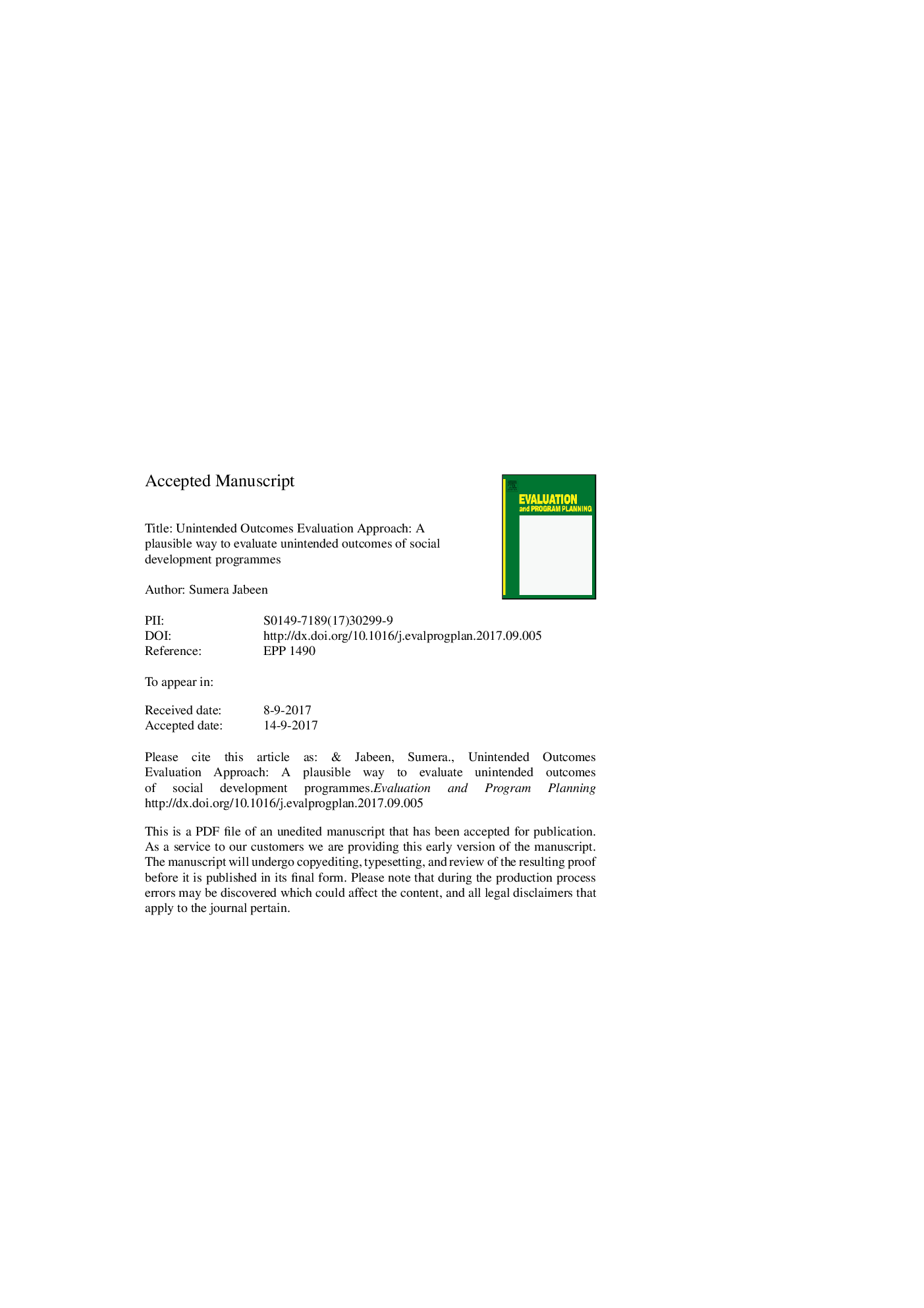| کد مقاله | کد نشریه | سال انتشار | مقاله انگلیسی | نسخه تمام متن |
|---|---|---|---|---|
| 6792163 | 1432701 | 2018 | 35 صفحه PDF | دانلود رایگان |
عنوان انگلیسی مقاله ISI
Unintended outcomes evaluation approach: A plausible way to evaluate unintended outcomes of social development programmes
ترجمه فارسی عنوان
رویکرد ارزیابی نتایج ناخواسته: روش قابل قبولی برای ارزیابی نتایج ناخواسته برنامه های توسعه اجتماعی است
دانلود مقاله + سفارش ترجمه
دانلود مقاله ISI انگلیسی
رایگان برای ایرانیان
کلمات کلیدی
تایپوگرافی نتایج ناخواسته، رویکرد ارزیابی نتیجه ناخواسته، پرسنل گرا ساختار پیچیدگی،
موضوعات مرتبط
علوم پزشکی و سلامت
پزشکی و دندانپزشکی
سیاست های بهداشت و سلامت عمومی
چکیده انگلیسی
To advance the knowledge of evaluation theory, methods and practice, the author has developed an evaluation approach to study unintended effects using a theory building, testing and refinement process. A comprehensive classification of unintended outcomes on the basis of knowability, value, distribution and temporality helped specify various type of unintended outcomes for programme evaluation. Corresponding to this classification, a three-step evaluation process was proposed including a) outlining programme intentions b) forecasting likely unintended effects c) mapping the anticipated and understanding unanticipated unintended outcomes. This unintended outcomes evaluation approach (UOEA) was then trialled by undertaking a multi-site and multi-method case study of a poverty alleviation programme in Pakistan and refinements were made to the approach.The case study revealed that this programme was producing a number of unintended effects, mostly negative, affecting those already disadvantaged such as the poorest, women and children. The trialling process demonstrated the effectiveness of the UOEA and suggests that this can serve as a useful guide for future evaluation practice. It also provides the discipline of evaluation with an empirically-based reference point for further theoretical developments in the study of unintended outcomes.
ناشر
Database: Elsevier - ScienceDirect (ساینس دایرکت)
Journal: Evaluation and Program Planning - Volume 68, June 2018, Pages 262-274
Journal: Evaluation and Program Planning - Volume 68, June 2018, Pages 262-274
نویسندگان
Sumera Jabeen,
